KUALA LUMPUR, Dec 30 — This year saw many notable court cases, including the conclusion of Datuk Seri Najib Razak’s criminal case over SRC International Sdn Bhd’s RM42 million — which had first gone to trial in 2019 in the High Court — at the Federal Court.
Here are the highlights by Malay Mail of some of the major court cases in Malaysia this year. Do you remember these cases?
Najib, SRC and 1MDB
Najib became the first former prime minister in Malaysia to be jailed after he failed in his final appeal at the Federal Court on August 23 in the SRC case. This is the first of his many 1MDB-linked cases where a final verdict was reached.
The Federal Court’s five-judge panel unanimously upheld his conviction and sentencing to a 12-year jail term and RM210 million fine over the misappropriation of SRC’s RM42 million.
Since his August 23 jailing in the Kajang prison, Najib has seen his titles revoked by Selangor and Penang, and has applied for both a royal pardon and for the Federal Court to review its decision on his conviction and sentencing. The bid for review will be heard on January 16, 2023.
The Prisons Department rejected the imprisoned Najib’s bid to attend Parliament on security reasons, while the High Court on October 27 also rejected his bid as Parliament was already dissolved and he was no longer an MP by the time his case was heard.
Separately, the High Court gave court orders on February 8 to freeze Najib’s assets up to a US$681 million value (which he will challenge in court on February 7, 2023) pending a 1MDB lawsuit against him, and also on March 24 to freeze his assets up to a RM42 million value (which Najib failed at the Court of Appeal on December 6 to set aside) pending an SRC lawsuit against him.
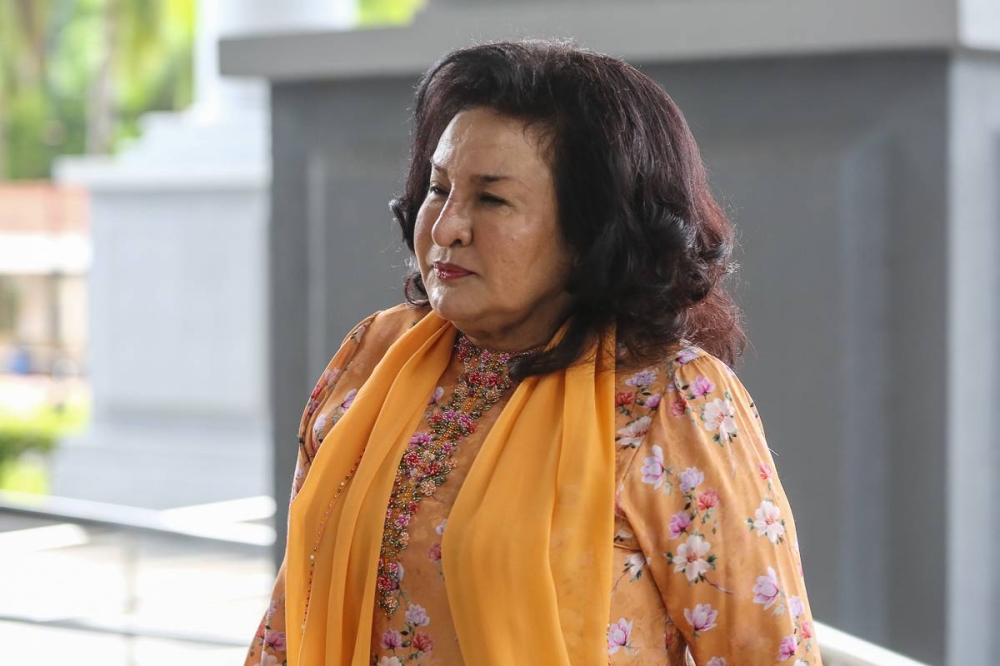
Rosmah convicted over bribes for Sarawak schools' electricity supply contract
On September 1, the High Court found Najib’s wife Datin Seri Rosmah Mansor guilty of all three corruption charges — over her alleged seeking of RM187.5 million and receiving of RM6.5 million as bribes to help a company secure a RM1.25 billion project to supply electricity to 369 rural schools in Sarawak.
Rosmah was sentenced to 10 years’ jail and a RM970 million fine (with an additional 10 years’ jail time for each charge if she fails to pay the fines), but the High Court has allowed a suspension or stay of sentence while she waits for her appeal to be heard. The Court of Appeal will hear her appeal on June 22 and June 23 next year.
Separately, Rosmah is also facing another trial tentatively set to start on May 12 next year — involving alleged money-laundering of over RM7 million. She is still trying to recuse or remove the judge hearing that case.
Najib, Rosmah can get back RM80m worth of jewellery, luxury items
On November 14, the High Court rejected the government’s bid to forfeit RM80 million worth of assets seized from raids in May 2018 — 2,435 pieces of jewellery, 29 Hermes handbags, seven Richard Mille watches — from Najib and Rosmah. The judge said the prosecution failed to show the items were obtained using illegal funds or 1MDB funds.
The prosecution is not appealing this decision.

The ‘basikal lajak’ case
The Magistrate’s Court previously acquitted Sam Ke Ting twice in 2019 and 2021 in a case of alleged reckless or dangerous driving resulting in the death of eight teenagers on "basikal lajak” (modified bicycles which typically have their brakes removed).
The accident took place at 3.20am on February 18, 2017 along the poorly-lit road of Jalan Lingkaran Dalam, Johor Baru.
But the High Court on April 13 reversed Sam’s acquittal and sentenced her to six years’ jail without bail, RM6,000 fine and three-year driving ban after imprisonment.
The Court of Appeal on April 18 granted her bail at RM10,000 and a stay of her sentence. It will hear her appeal on March 31, which will be the 27-year-old’s final chance of overturning her conviction and sentence.
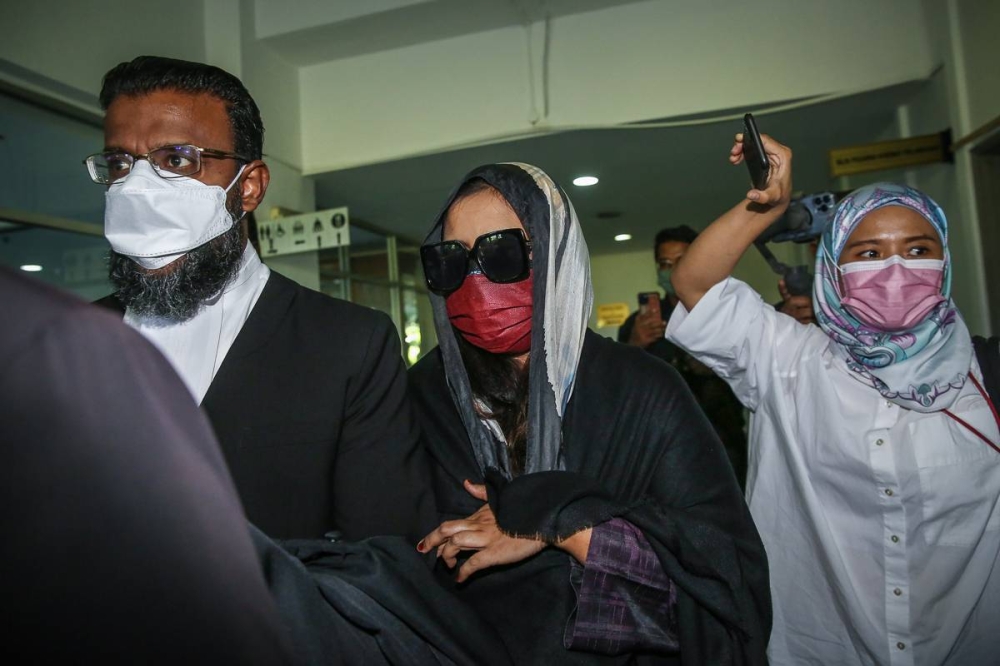
Cradle Fund’s former CEO’s 2018 murder case
On June 22, the High Court acquitted Samirah Muzaffar and two teenagers over the June 2018 murder of then Cradle Fund CEO Nazrin Hassan at his house in Mutiara Damansara, Selangor, after finding that the prosecution had failed to prove a prima facie case. This means the three individuals do not need to enter their defence and are freed from the murder charge.
The prosecution on June 23 filed an appeal against the acquittals, while Samirah and the three teenagers reportedly also filed an appeal against certain findings of facts by the High Court. No hearing date at the Court of Appeal has been fixed yet.
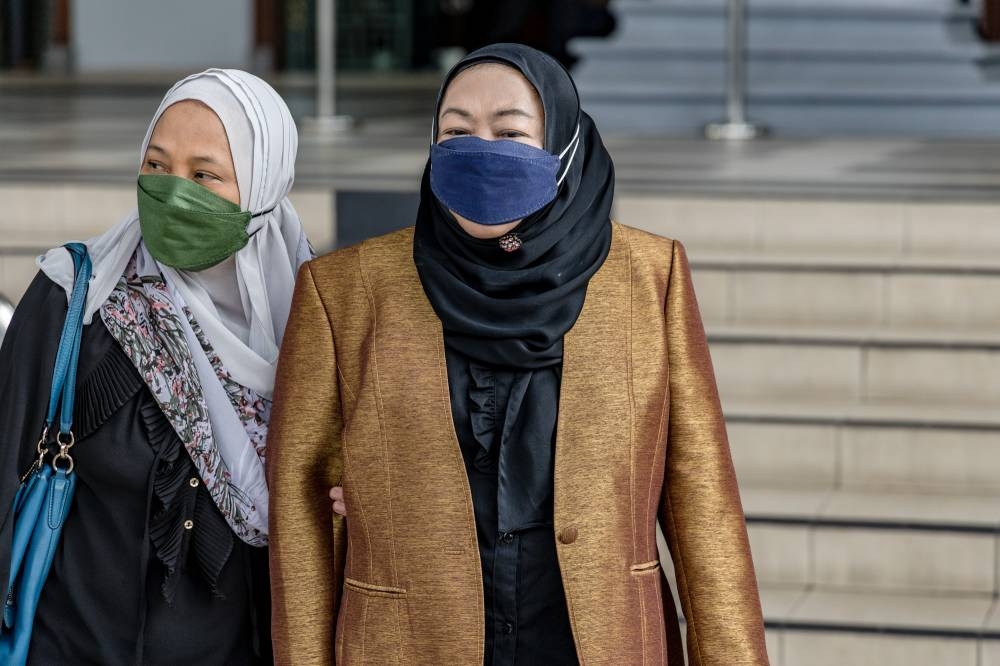
Who walked free?
Ex-spy chief acquitted: On August 9, the High Court fully acquitted Datuk Hasanah Abdul Hamid, the former director-general of the Malaysian External Intelligence Organisation (MEIO), of criminal breach of trust involving RM50.4 million of government funds. The prosecution did not object to her application to be acquitted and fully discharged.
Hasanah had already obtained a discharge not amounting to an acquittal in April last year in the same case when the prosecution decided not to continue the trial.
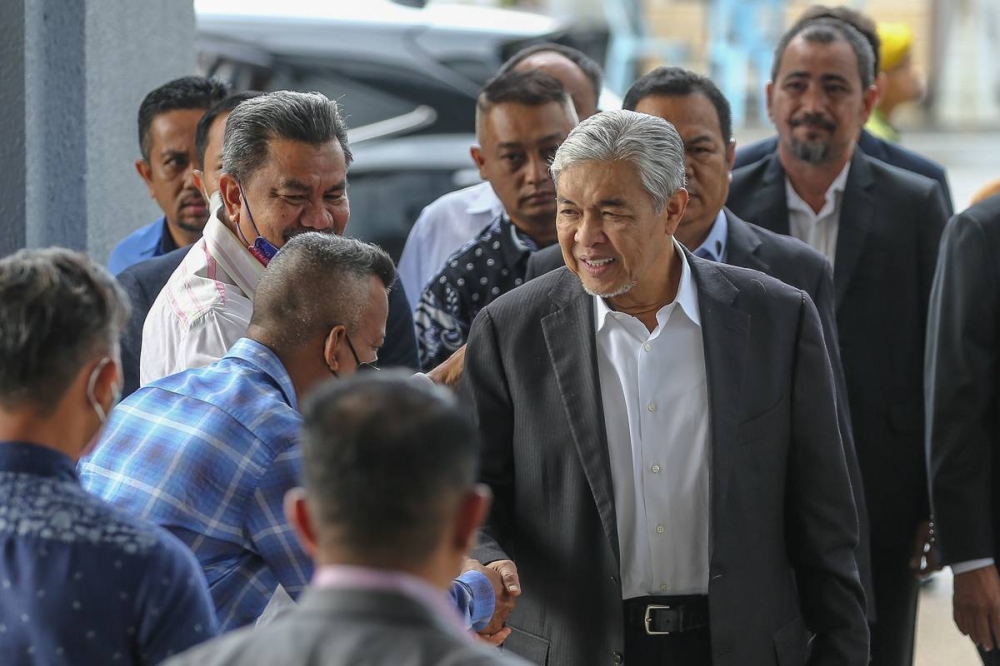
Ex-home minister Zahid acquitted in VLN trial: On September 23, the High Court in Shah Alam acquitted Datuk Seri Ahmad Zahid Hamidi of all 40 bribery charges over his alleged receiving of millions in ringgit as bribes from a company over contracts related to the foreign visa system (VLN), without requiring him to enter his defence as the prosecution failed to prove a prima facie case.
The prosecution has filed an appeal against the acquittal.
Separately, Zahid is undergoing another trial in the High Court in Kuala Lumpur in relation to charitable organisation Yayasan Akalbudi’s funds, as the court on January 24 had ordered him to enter his defence on all 47 charges relating to alleged criminal breach of trust, corruption and money laundering.
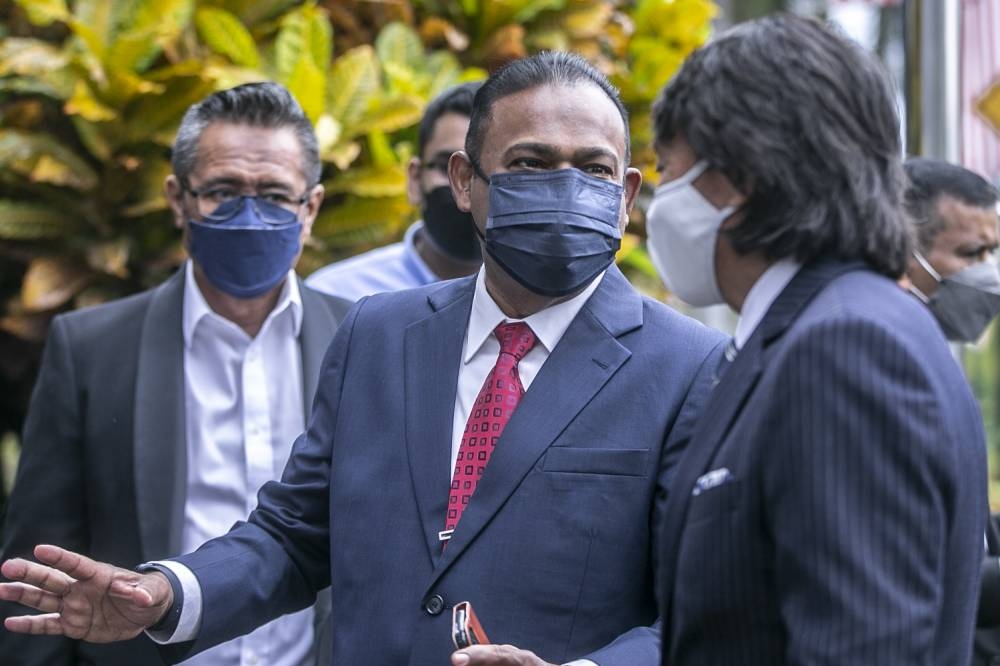
Ex-Baling MP acquitted: On December 9, the High Court acquitted former Lembaga Tabung Haji chairman Datuk Seri Abdul Azeez Abdul Rahim of the remaining three corruption and six money-laundering charges against him. The prosecution did not object to the acquittal application, as it had found no evidence favouring the prosecution after the completion of further investigation on fresh evidence.
Azeez’s brother Datuk Abdul Latif Abdul Rahim was acquitted earlier by the High Court on January 19 of two charges of abetting him. This follows the Sessions Court’s February 8, 2021 granting of a discharge not amounting to acquittal (DNAA) of Abdul Latif, following requests by the latter’s lawyer for the charges to be dropped and after he agreed to testify against Azeez.
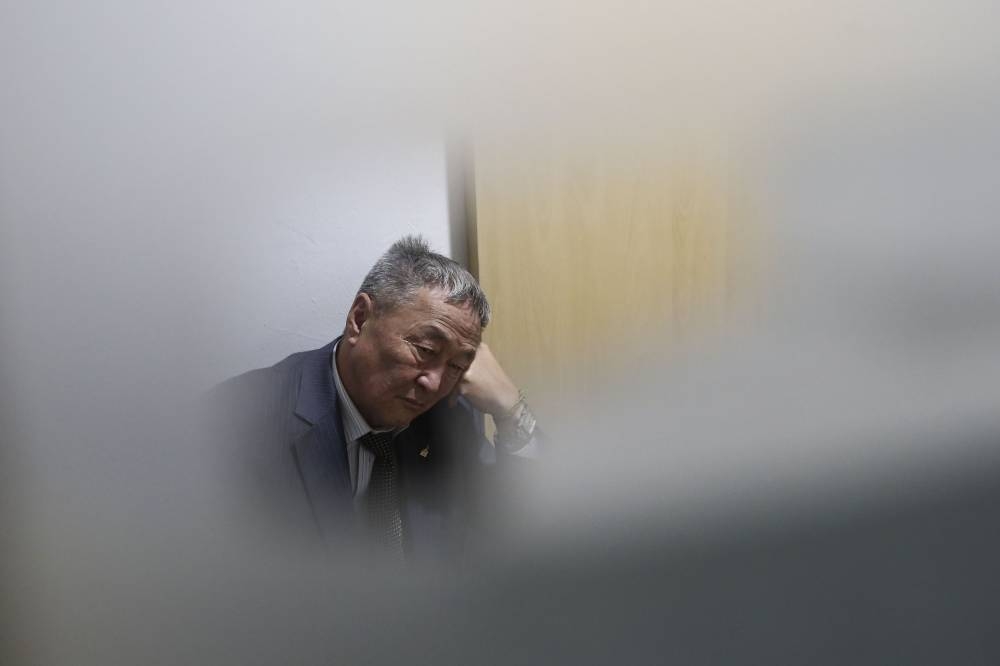
Mongolian Altantuya’s family compensated over her 2006 death
On December 16, the High Court awarded RM5 million in compensation to the family of Mongolian model Altantuya Shaariibuu, with the amount to be paid jointly by former police commandos Chief Inspector Azilah Hadri and Corporal Sirul Azhar Umar, former political analyst Abdul Razak Baginda (who was accused of abetting the duo but was acquitted previously) and the Malaysian government.
This comes 16 years after her death in October 2006 in a jungle clearing in Selangor.
Altantuya’s parents and her two sons had filed the civil lawsuit on June 4, 2007 to claim for RM100 million in compensation. The lawsuit finally began on January 23, 2019, after having been paused initially while waiting for the criminal case which finally concluded in 2015.
In the criminal case, the Federal Court on January 13, 2015 delivered its unanimous decision to reverse the acquittal of Azilah and Sirul over her death and restored their death sentence. Since then, Azilah has been on death row in Malaysian prisons, while Sirul — who did not show up in court — is believed to be in Australia.
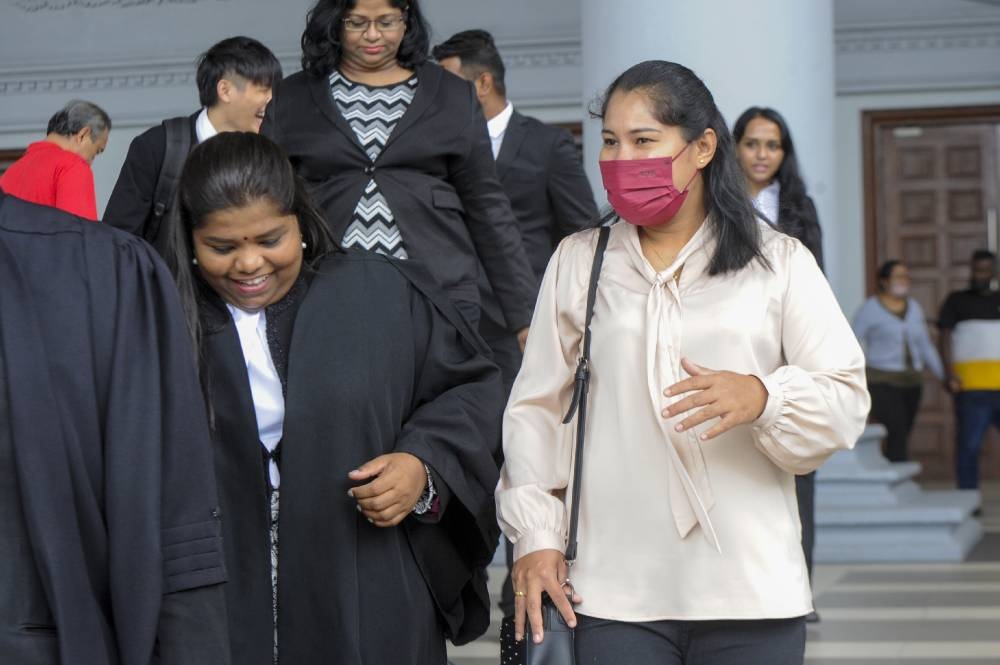
Loh Siew Hong reunites with children taken away by Muslim convert ex-husband
Separated from her three young children who were allegedly taken away by her ex-husband in 2019, Loh finally reunited with them after winning a High Court order on February 21 for the immediate release of the children — now aged 10 and 14 — from alleged unlawful detention.
While Loh and her ex-husband already had their divorce finalised in September 2021, the Perlis Islamic Religious and Malay Customs Council (MAIPs) on March 7, 2022 applied to intervene or be a party to the divorce case. If it becomes an intervener, MAIPs’s goal is to be able to ask the court to vary or make changes to the March 2021 custody order — which had given Loh sole custody and care over her children — to assist in matters such as Islamic education.
The High Court on June 15 dismissed MAIPs’s bid to intervene, with the Court of Appeal scheduled on February 7, 2023 to hear MAIPs’s appeal.
Separately, the High Court on August 1 allowed Loh to proceed with her lawsuit to challenge the ex-husband’s July 2020 unilateral conversion of the three children to Islam without her knowledge and consent. This case will come up for hearing on March 21, 2023.
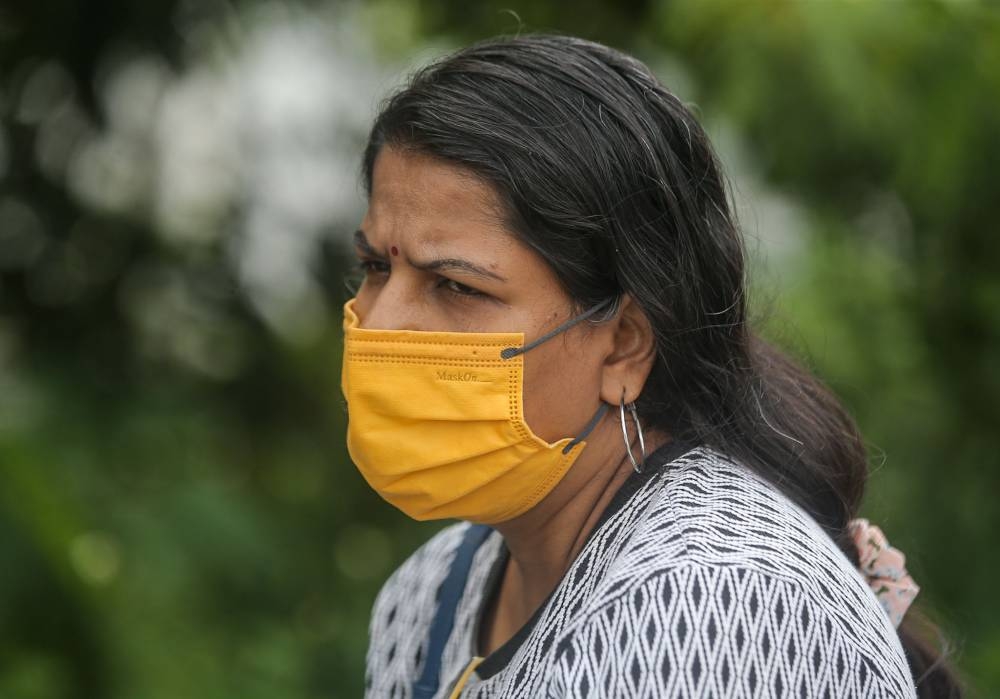
Federal Court reaffirms both parents’ consent needed for children’s conversion to Islam
In January 2018, the Federal Court’s unanimous decision in the case of Hindu mother M. Indira Gandhi had ruled that the ex-husband’s unilateral conversion of her children’s religion to Islam without her consent is invalid and goes against the Federal Constitution, as both parents have to agree to the religious conversion.
In similar cases on religious status of children who were born when both parents were still non-Muslims, the Federal Court affirmed twice this year that the landmark ruling in Indira’s case still applies.
On January 26, the Federal Court unanimously rejected the Selangor Islamic religious bodies’ final bid to restore a Muslim convert father’s unilateral move in 2018 to convert his five children — when they were still aged around nine to three — to Islam without the non-Muslim mother’s knowledge, declaring the Indira ruling as the correct approach which had settled the same issue.
On April 12, the Federal Court unanimously rejected a Buddhist-turned-Muslim mother’s bid to appeal to restore her unilateral conversion in 2016 of her two children — then aged eight and three — to Islam without the Buddhist father’s consent.
The Federal Court again said that the issue, in this case, was identical to Indira’s case, and noted that the 2018 ruling in the Indira case had already settled the same issue.






















